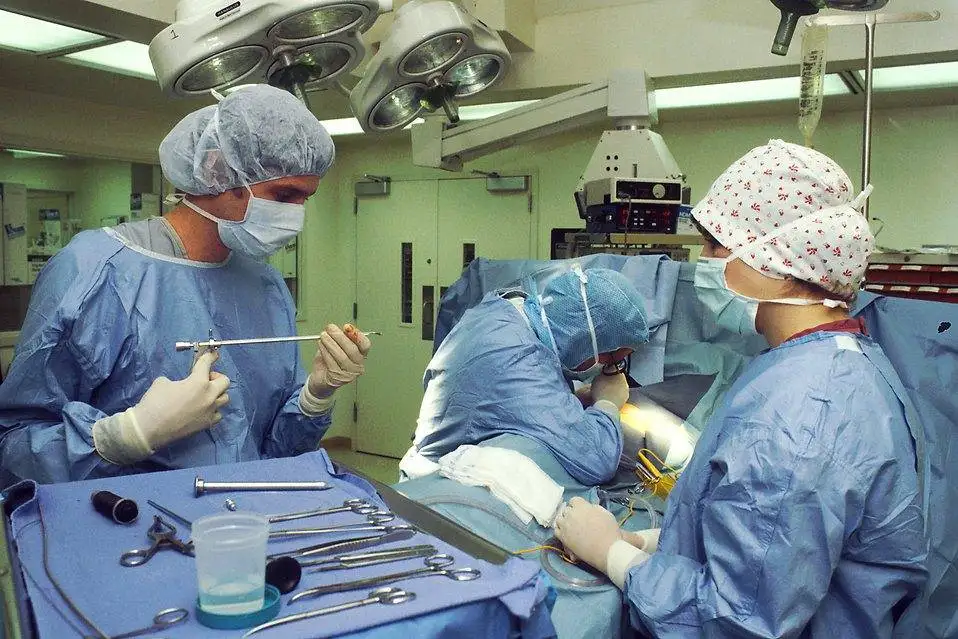Welcoming a new baby into your home is an exciting and joyous event. As new parents, there are countless things to learn and many decisions to make. One of the most important steps is to schedule a visit to your pediatrician soon after bringing your baby home.
Regular pediatrician visits are crucial for ensuring your baby’s health and well-being. This blog post will discuss why you should visit your pediatrician after your baby arrives–your first pediatrician visit.
1. Early Health Assessment
What to Expect During the First Visit
The first pediatrician visit typically happens within the first week after your baby is born. During this visit, the doctor will perform a comprehensive health assessment. This includes checking your baby’s weight, length, and head circumference. The doctor will also examine your baby’s heart, lungs, eyes, ears, and other vital systems.
Your baby’s weight is a critical indicator of their health. Many newborns lose some weight in the first few days after birth, but they should start to regain it by the time of the first pediatric visit.
Importance of Monitoring Growth
Monitoring your baby’s growth is vital in the early stages. Babies grow fast, and keeping track of their development helps identify potential issues early on. Your pediatrician will compare your baby’s growth to standard growth charts and guide you if your baby’s growth is outside the typical range.
Growth monitoring identifies problems caused by various factors including feeding difficulties or medical conditions. If your baby isn’t gaining weight as expected, your pediatrician offers advice on feeding techniques or investigates potential underlying health issues.
2. Jaundice Check
Understanding Jaundice
Jaundice is a common condition in newborns, characterized by yellowing of the skin and eyes. It occurs due to an excess of bilirubin, a substance produced during the breakdown of red blood cells. While jaundice is usually harmless and resolves on its own, it’s essential to have it checked by a pediatrician to rule out any underlying issues.
Jaundice typically appears within the first few days of life and peaks around the 3rd-5th day. In most cases, it resolves without intervention, but in some cases, it leads to complications if not properly monitored and treated.
Treating Jaundice
During the visit, the pediatrician will check your baby’s skin and eyes for signs of jaundice. They perform a blood test to measure bilirubin levels. Treatment for jaundice includes increased feedings to help your baby’s body eliminate bilirubin or phototherapy in more severe cases.
Phototherapy involves placing your baby under special lights that help break down bilirubin in the skin. In rare cases where bilirubin levels are extremely high, intensive treatments such as blood transfusions are required.
3. Breastfeeding Support
Getting Started with Breastfeeding
Breastfeeding can be challenging for new mothers. During your pediatrician visit, you receive valuable breastfeeding support and advice. The pediatrician provides tips on proper latching techniques, positioning, and frequency of feedings. They also address concerns about milk supply and your baby’s feeding patterns.
Many mothers experience difficulties with breastfeeding, such as nipple pain, latching problems, and concerns about milk supply. Your pediatrician offers guidance and support to help you overcome these challenges. They also refer you to a lactation consultant for more specialized assistance.
Identifying Feeding Issues
Sometimes, babies may have difficulty breastfeeding for various reasons, such as tongue tie (a condition where the tongue’s movement is restricted) or other oral issues. Your pediatrician identifies these problems and suggests appropriate interventions to ensure your baby is feeding well and getting enough nutrition.
A baby may have difficulty transferring milk effectively from the breast, leading to inadequate weight gain. Your pediatrician assesses your baby’s feeding technique and recommends strategies to improve milk transfer. They also evaluate your baby for conditions such as gastroesophageal reflux, which can affect feeding and weight gain.
4. Vaccination Schedule
Importance of Vaccinations
Vaccinations are a critical part of your baby’s healthcare routine. They protect against serious illnesses and infections. During your pediatrician visit, you will have the vaccination schedule tailored to your baby’s needs. This schedule outlines when each vaccine should be administered for your baby’s protection as it grows.
Vaccines stimulate your baby’s immune system to produce antibodies against specific diseases. This helps to protect your baby from infections such as measles, mumps, and whooping cough. Vaccination is one of the most effective ways to prevent serious childhood illnesses and protect your baby’s health.
Common Vaccinations for Newborns
In the first few months, your baby will receive several essential vaccines, including hepatitis B, rotavirus, diphtheria, tetanus, and pertussis (whooping cough). Your pediatrician will explain the benefits and potential side effects and answer any questions you may have.
The hepatitis B vaccine is given within the first 24 hours of life to protect against hepatitis B infection, which causes liver disease. The rotavirus vaccine is given to protect against rotavirus infection, which causes diarrhea and dehydration in infants.
5. Newborn Screening Tests
Understanding Screening Tests
Newborn screening tests detect certain genetic, metabolic, and hormonal disorders that may not be apparent at birth. These tests are usually done within the first few days after birth. This involves a heel-prick blood test to collect a few drops of blood from your baby’s heel.
The blood sample is tested for conditions, including metabolic disorders, hormone deficiencies, and genetic diseases. These conditions could lead to serious health problems if not treated early. Early detection and treatment prevent serious health problems and improve your baby’s long-term health.
Common Screening Tests
Some common newborn screening tests include tests for phenylketonuria (PKU), congenital hypothyroidism, and cystic fibrosis. If any of these tests indicate a potential issue, your pediatrician will discuss the results with you and outline the necessary steps for further testing or treatment.
Phenylketonuria (PKU) is a metabolic disorder that affects the body’s ability to break down the amino acid phenylalanine. If left untreated, it leads to intellectual disability and other health problems. Congenital hypothyroidism is when the thyroid gland doesn’t produce enough thyroid hormone, essential for growth and development.
Cystic fibrosis is a genetic disorder that affects the lungs and digestive system. Early detection and treatment of these conditions prevent complications and improve outcomes.
6. Developmental Milestones
Tracking Development
Your baby’s development is closely monitored during pediatrician visits. The doctor checks for key developmental milestones, such as head control, rolling over, and social interactions. These milestones assess your baby’s physical and cognitive development.
Developmental milestones are important indicators of your baby’s progress. They include physical milestones such as lifting the head, rolling over, sitting up, and crawling, as well as social milestones such as smiling, cooing, and making eye contact.
Early Intervention
If your pediatrician notices any delays or concerns with your baby’s development, they can recommend early intervention services. Early intervention can significantly improve outcomes for babies with developmental delays, helping them reach their full potential.
Early intervention services include physical therapy, occupational therapy, speech therapy, and other specialized support to address developmental delays. These services are designed to help your baby develop the skills they need to reach their full potential. Early intervention impacts your baby’s development and overall well-being.
7. Establishing a Healthcare Routine
Building a Relationship with Your Pediatrician
Regular visits to the pediatrician establish a healthcare routine. These visits build a relationship with your pediatrician, making it easier to address any health concerns as they arise. Your pediatrician becomes a trusted partner in your baby’s health journey.
Building a relationship with your pediatrician is important for your baby’s health. Your pediatrician becomes familiar with your baby’s medical history and can provide personalized care based on their unique needs. This relationship can provide continuity and trust, which is essential for addressing any health concerns that may arise.
Preventive Care
Pediatrician visits are for treating illnesses and preventive care. During these visits, they will guide you on various aspects of your baby’s health, including nutrition, sleep, and safety. Preventive care helps keep your baby healthy and reduces the risk of future health issues.
Preventive care includes regular check-ups, vaccinations, and health screenings to detect and address potential health issues before they become serious. Your pediatrician will guide feeding and nutrition, sleep habits, and safety measures to protect your baby from injury.
8. Addressing Parental Concerns
Peace of Mind
As new parents, it’s natural to have concerns and questions about your baby’s health and well-being. Visiting your pediatrician allows for discussing these concerns and receiving professional advice. This peace of mind is invaluable, especially in the early days of parenthood.
New parents have questions and concerns about their baby’s health, such as feeding, sleeping, and general care. Your pediatrician is a valuable resource for addressing these concerns and providing reassurance. Knowing that you have access to professional advice and support helps ease the stress and anxiety of parenthood.
Expert Advice
Pediatricians are experts in child health. They provide evidence-based advice on varied topics, from soothing a colicky baby to introducing solid foods. Access to expert advice ensures you make informed decisions for your baby’s health.
Your pediatrician can guide you on varied topics, including breastfeeding, formula feeding, sleep training, and introducing solid foods. They advise on common baby care issues such as diaper rash, colic, and teething. Access to expert advice helps you make informed decisions and provides the best care for your baby.
9. Postpartum Support for Mothers
Maternal Health
Your health is just as important as your baby’s health. Pediatrician visits include discussions about maternal health, including postpartum depression, breastfeeding challenges, and overall well-being. Your pediatrician offers resources and support to help you navigate the postpartum period.
Postpartum depression is a common condition that affects many new mothers. It causes feelings of sadness, anxiety, and fatigue, which makes it difficult to care for your baby. Your pediatrician helps identify signs of postpartum depression and provides support and resources to help you manage it.
Family Adjustment
Bringing home a new baby is a significant adjustment for the entire family. Pediatricians guide sibling relationships, family dynamics, and coping strategies to ensure a smooth transition for everyone.
Adjusting to life with a new baby can be challenging for the entire family. Siblings feel jealous or left out, and parents struggle with balancing the baby’s needs with those of older children. Your pediatrician offers advice on how to help siblings adjust to the new baby and provides tips for maintaining a healthy family dynamic.
10. Building a Lifelong Health Foundation
Setting the Stage for Future Health
The early years of a child’s life are crucial for building a strong health foundation. Regular pediatrician visits ensure your baby receives the best possible start in life. These visits establish a routine of preventive care, early detection, and prompt treatment, setting the stage for lifelong health.
Early childhood is a critical period for establishing healthy habits and behaviors. Regular pediatrician visits help ensure your baby grows and develops properly and receives the necessary preventive care. These visits also provide an opportunity to address any health concerns early on, preventing potential problems from becoming more serious.
Establishing a routine of regular check-ups and preventive care helps set the stage for a lifetime of good health.
Importance of Continuity of Care
Continuity of care with the same pediatrician allows for a comprehensive understanding of your baby’s health history. This continuity ensures that your baby’s health needs are consistently met and that any changes in their health are promptly addressed.
A consistent pediatrician familiar with your baby’s health history is important for providing personalized care. Your pediatrician will have a complete record of your baby’s medical history, growth, and development, allowing them to provide the best possible care.
Schedule Your Baby’s First Pediatrician Visit
In conclusion, visiting your pediatrician after bringing home your new baby is essential for numerous reasons. Don’t hesitate to schedule that first pediatrician visit–it’s a crucial step to ensure your baby’s healthy start in life.
For more information and insights, check out our blogs at Omega Pediatrics. We have a wealth of resources on newborn care and pediatric visits.






